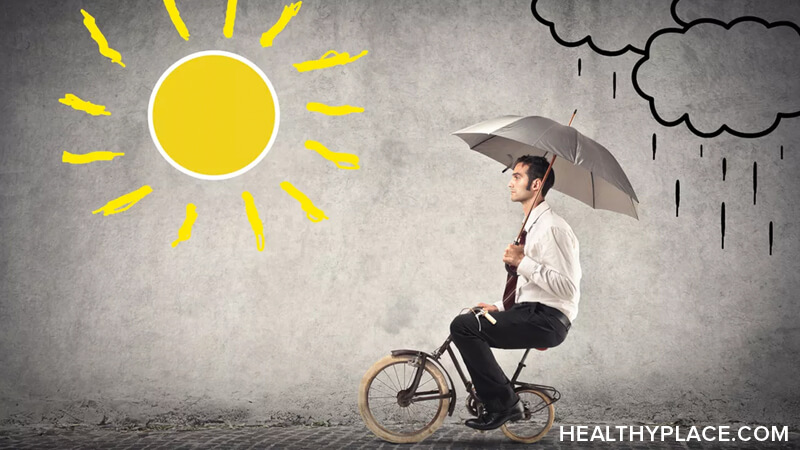What Are and What Can You Do About an Autistic Meltdown?

As an autistic person, I have been told many times that I am “sensitive” and I have experienced autistic meltdowns. My whole life, the smallest of inconveniences or changes in plan can bring me to tears. Getting stuck in the rain would cause a full meltdown. I’ve even had a doctor dismiss my symptoms and tell me “you’re just too sensitive.”
What Is an Autistic Meltdown?
An autistic meltdown is a sudden loss of control or ‘an intense response to overwhelming situations.’1 When an autistic person feels particularly overwhelmed, a loss in control can result in a loss of behavioral control. For some, this can result in lashing out physically or verbally.2
When I have a meltdown, I feel like the walls of my brain are caving in. I feel completely helpless. Sometimes I just wait for it to be over.
Most of the time, when people think of autistic meltdowns, they might imagine a child. Neurotypicals (those who haven’t experienced mental difference or disability) don’t often respond to overwhelming situations with screaming or self-harm.
Unfortunately, meltdowns are my reality. Almost every day, I scream and cry with a pillow over my head. I might slap myself in the face. I may throw myself on the floor as hard as I can. My service animal follows me diligently around the house for a very good reason.
What Can Cause an Autistic Meltdown?
Because I have an autistic brain, I experience the world differently than others. Sensory overload is a major issue for me. I use noise-canceling headphones most of the day, but if a situation is too loud, I can have a meltdown.
Light sensitivity can also trigger a meltdown. If the sun is too bright, my thoughts feel scattered across the ground and I have trouble seeing. If I’m too hot, cold, hungry, dehydrated, lost, busy, anxious, late, or caught without an umbrella, I am seconds from throwing a complete fit.
Concerts are too much. The supermarket is a nightmare. The threat of an autistic meltdown is omnipresent in my mind.
My 4 Steps to Work Through an Autistic Meltdown
1. Separate from stimulation
When I can feel myself getting over-stimulated, I try to separate myself from everyone. If I’m out, I turn on my headphones and shut my eyes. When I’m home, I go into my room with my service animal and wait it out.
2. Stim
“Stimming” is short for “self-stimulatory behavior,” and it refers to ‘a subset of repetitive movements such as twirling, hand-flapping, or vocalizations.’3 Stimming can help me feel better, and can also help avoid self-harm. If I need to flap my hands, pet my dog, or cry it out, I let my body do what it needs to get me through it.
3. Grounding Techniques
Thousands of different grounding exercises could bring your mind to the present moment. What works for one person might not work for another. For me, I find that asking myself a series of pre-written questions can ground me in the present.
I ask myself things like:
- What’s my name?
- What’s my dog’s name?
- Where do I live?
4. Self-Care
When my autistic meltdown ends, I need to remember to care for myself. Meltdowns are mentally and physically draining. Sometimes, I need a nap. Other times, I will want to relax with one of my special interests. Whether I take a bath or play video games, the most important that I take care of myself.
Meltdowns are a big part of autism. Share in the comments how you deal with an autistic meltdown or panic attack, and how you care for yourself afterward. I am always open to new strategies.
Sources
- Ryan, S., "'Meltdowns,' Surveillance, and Managing Emotions; Going Out with Children with Autism. Research Autism, September 2010.
- "Meltdowns." National Autistic Society, March 2016.
- Deweert, Sarah. "Repetitive Behaviors and 'Stimming' in Autism Explained." Spectrum News, January 2020.
APA Reference
Queue, A.
(2020, June 29). What Are and What Can You Do About an Autistic Meltdown?, HealthyPlace. Retrieved
on 2026, March 4 from https://www.healthyplace.com/blogs/thelifelgbt/2020/6/what-are-and-what-can-you-do-about-an-autistic-meltdown